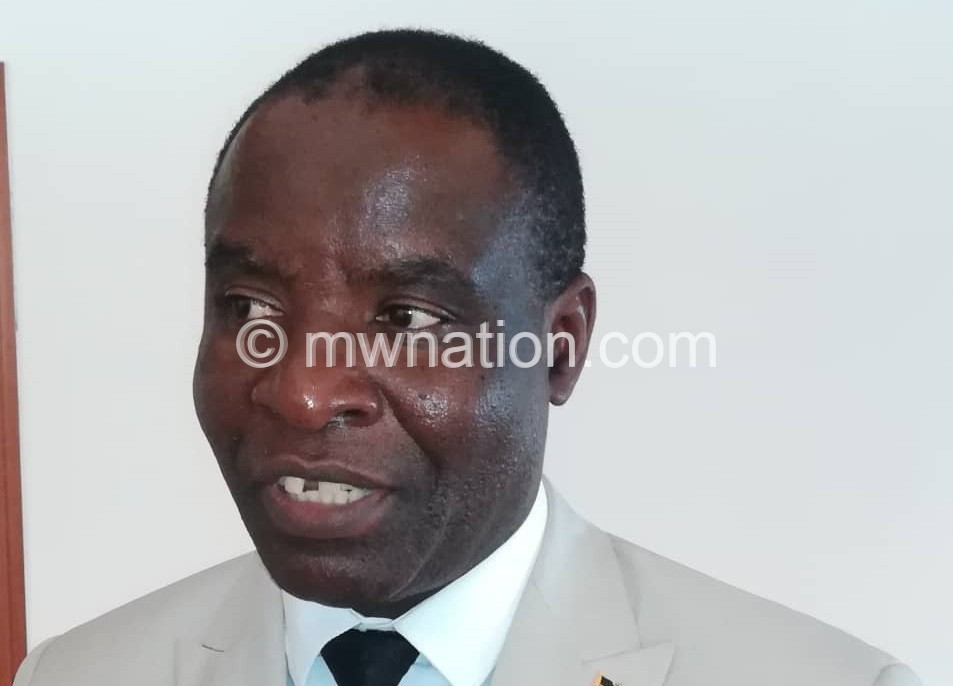Govt jobs report raises eyebrows
Parliament’s Public Appointments Committee has cast doubt on the credibility of a report from the Department of Human Resource Management and Development (DHRMD) on distribution of jobs in the civil service, saying it is marred by errors.
Committee chairperson Collins Kajawa expressed the sentiments in an interview yesterday after meeting a DHRMD team at Parliament Building in Lilongwe.

The department’s Principal Secretary Hillary Chimota presented the report following the committee’s November 2019 request as part of an inquiry into allegations of nepotism in appointments in the civil service.
Kajawa said the figures presented left a lot to be desired, especially given that the tallied national population is beyond the 17.6 million the National Statistical Office established in the 2018 Population and Housing Census.
If the department’s presentation is anything to go by, there are 22 245 222 people in the country.
Kajawa said his committee expects an elaborate data from the department next time they meet, highlighting that the preliminary data provided is questionable.
He said: “On the figures presented, for phase one, I am not really satisfied with them. There are many errors provided, we believe that our in next meeting they will give a true reflection on the ground.”
But on a positive note, Kajawa said in a country where there are perceptions of nepotism and unequal employment distribution of jobs in the service, the committee has observed that the problem could not be as worse as people present it.
In his presentation, Chimota said the information available does not demonstrate nepotism or bias in civil service recruitment.
He said: “I have presented the number of civil servants per district. We have fair distribution in the country. There is no nepotism and people are talking [about nepotism] without evidence.”
Based on the report, the Northern Region with a population of 2.2 million or 13 percent of the country’s population, has 38 350 civil servants. This represents 1.7 percent of the region’s population. The region holds 21.9 percent of positions in Grade P4 and above.
Second in terms of more jobs in the civil service is the Southern Region, with a population of 4.6 million or 26.6 percent of the national population, its workforce of 48 867 account for one percent of the region’s population. The region has 24.3 percent of the jobs in Grade P4 and above.
The Central Region has 63 394 civil service jobs for a population of 7.5 million representing 0.84 percent of people in the region. In terms of positions in Grade P4 and above, the region has 33 percent.
The Eastern Region has the least representation 0.35 percent for a population of 7.7 million. There are 27 253 civil servants from the Eastern Region, according to the report.
In another development, the civil servants verification exercise through use of national identity cards has given an indication that five out of every 100 government employees or 8 893 could be ghost workers.
In an interview, Chimota said while 95 percent of the 177 864 civil servants have so far submitted their national ID details, there is no action from the remaining five percent.
He said the five percent have been given up to March this year or risk being permanently removed from government’s payroll.
Chimota said out of the 95 percent who submitted their IDs, 70 percent were cleared and received their December salaries while the remaining 30 percent were still being scrutinised and are yet to get paid.
He told the committee that government will finalise the process of cleaning the civil service payroll by March.
Currently, teachers are holding a nationwide strike demanding government to give their counterparts who were left out with other civil servants on the December payroll. In September 2018, government asked civil servants to submit their national ID details, but Chimota said compliance was zero with some alleging that the move was a scheme by government to rig the May 21 2019 Tripartite Elections by getting civil servants’ details through the IDs request.





